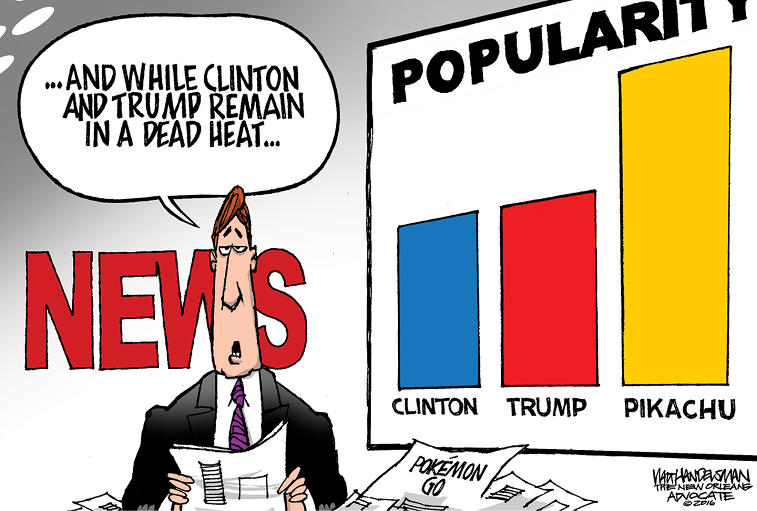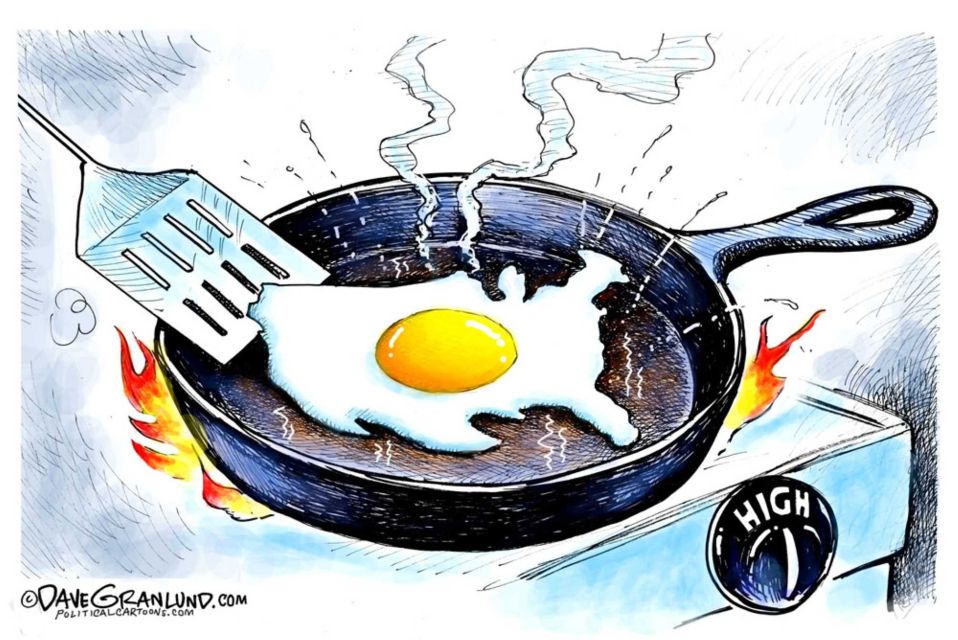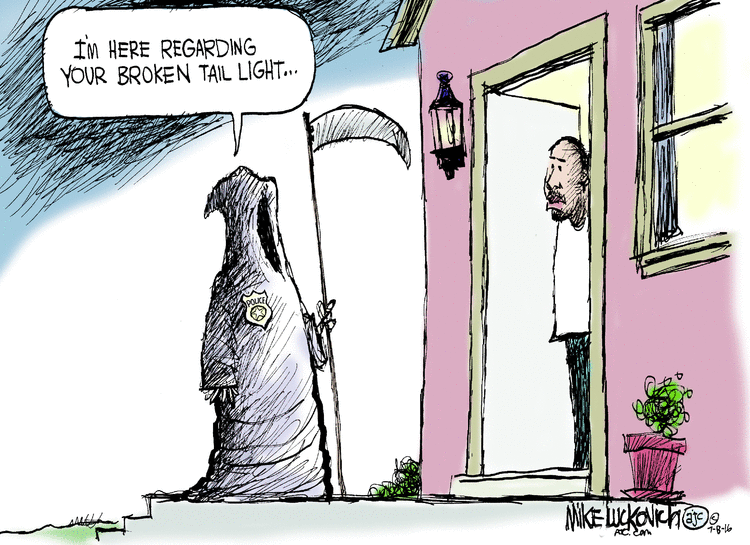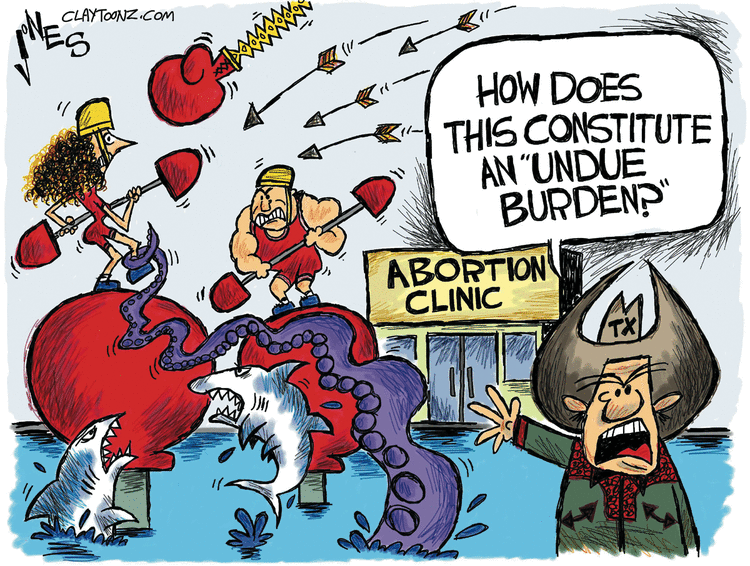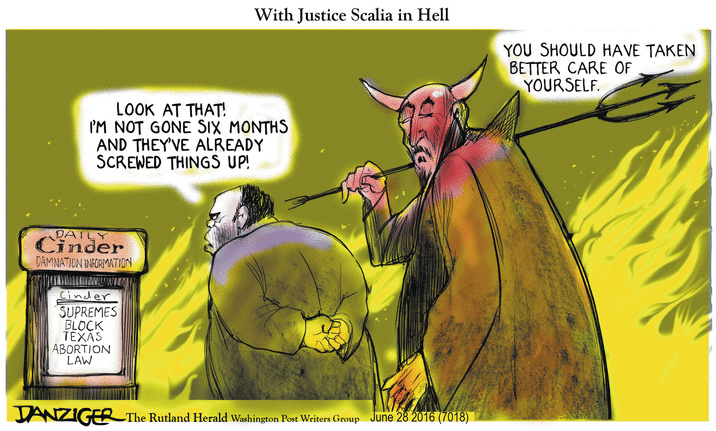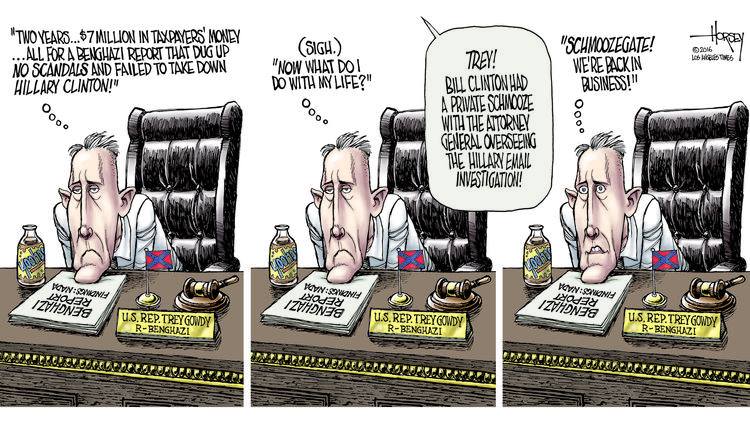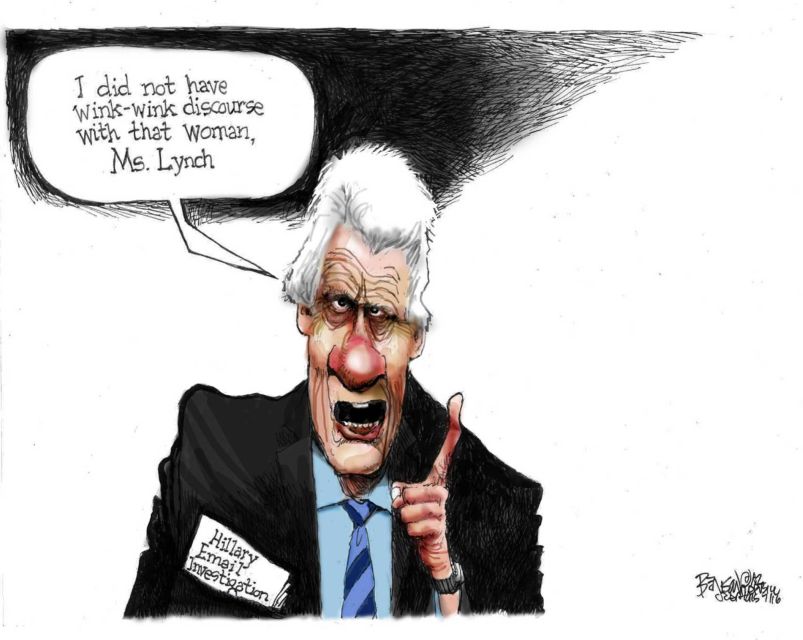Wrongo has tried hard not to write again about the murderous and divisive actions taken against police over the past few weeks, but it seems impossible. From the NYT:
The twin attacks — three officers dead Sunday in Baton Rouge, five killed on July 7 in Dallas, along with at least 12 injured over all — have set off a period of fear, anguish and confusion among the nation’s 900,000 state and local law enforcement officers. Even the most hardened veterans call this one of the most charged moments of policing they have experienced.
Never one to let bad news pass without blaming, the Pant Suit criticized President Obama’s response:
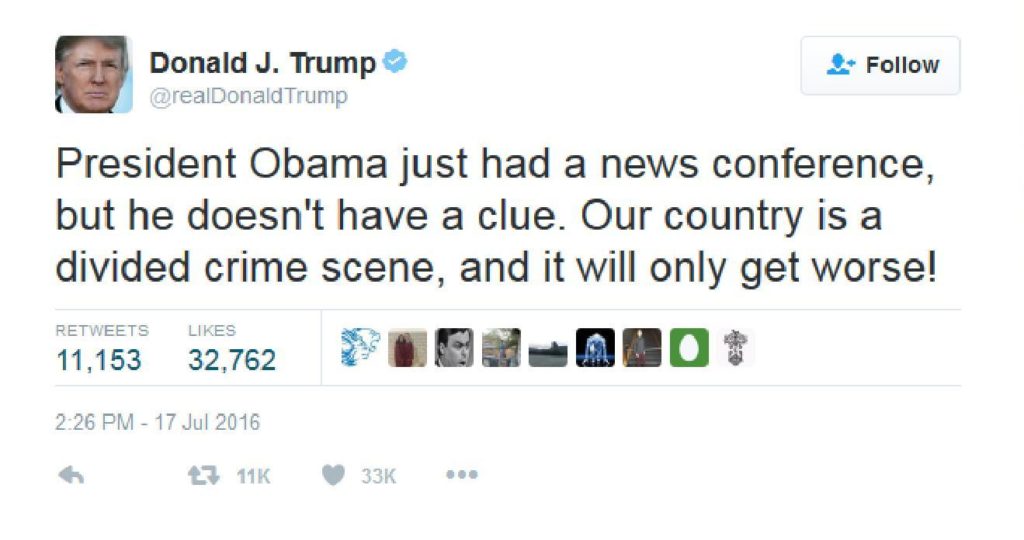
Monday kicked off the GOP Convention. The theme for the first day is “Make America Safe Again”. In case you thought that despite the recent spate of cop killings, you live in one of the safest places on earth, the Trump team is out to scare you up good.
The central theme of Trump’s campaign is that he plans to protect you: From scary Islamic terrorists, from scary immigrants who steal jobs, rape and pillage, and from scary black men with guns.
This resonates with many Republicans who are in the grip of overpowering nostalgia for the1950’s. Republicans see this as a time of stable marriages, respect for authority and economic dynamism. They are not alone: Democrats see it as a time when most men could leave high school and walk into a well-paid job, with pension and health-care benefits, which would allow them to support a family and retire comfortably.
There was much to like about this era of 25₵ gallons of gas, sport coats and cars with tail fins, but it is far from the whole story. It forgets the specter of nuclear annihilation that was ever-present. It forgets that women had little chance of a career beyond the typists’ pool, or that society forced African-Americans to the back of the bus.
Feminism, the civil-rights movement and economic progress in other countries swung a wrecking-ball at the society of the 1950s. But, to regret its collapse, as many Tea Partiers and Republicans do, is also to wish those improvements had never happened, which is absurd. Life was NOT good for the working person in the 1930s and 1940s. Even in the halcyon days of the 1950s -1970s, life was not good for women, people of color, gay people, and others.
Republicans see our politics and our culture decaying, so we see the sharpening Trump “law and order” rhetoric, and the success of the Tea Party in setting our national political agenda.
An alternative view to Trump’s is that Obama’s eulogy for five Dallas police officers a week ago was an eloquent plea to Americans to acquire “a new heart” – a new empathy toward others across the racial divide. And rarely has a president talked so bluntly about the limits of his ability to bring about the changes he seeks. Mr. Obama:
It is as if the deepest fault lines of our democracy have suddenly been exposed, perhaps even widened…Faced with this violence, we wonder if the divides of race in America can ever be bridged…We must reject such despair…I’ve seen how inadequate words can be in bringing about lasting change. I’ve seen how inadequate my own words have been…I confess that sometimes I, too, experience doubt.
In an era of partisan polarization, the problem isn’t merely a deficit of leaders capable of binding us together; it’s a shortage of citizens willing to listen. According to the Pew Research Center, only 14% of Republicans approve of Obama’s conduct, compared with 80% of Democrats. That’s a record high in polarization – except that the previous record held by George W. Bush, who was supported by only 23% of Democrats. Trump is exploiting that.
When we zoom out from the “Make America Safe Again” meme, we remain in a competition between divergent views. We will not even start on the road to consensus until two conditions are met:
- Our solutions strive for the preservation of a value called “the greater good”.
- Our solutions rely on the preservation of a value called “in good faith”.
We have never changed ethics by legislation, although we can impact behavior. What we have to change is whether or not we as a society will accept the greater good and good faith as inextricable parts of our society.
But as long as there are those among us who can defend the rights of people to use a weapon of war to kill policemen and children, or people who threaten the careers of the elected representatives who stand up to them, we will be seeing this happen again and again, and we’ll be stuck asking the same questions over and over.





 America has decided:
America has decided: